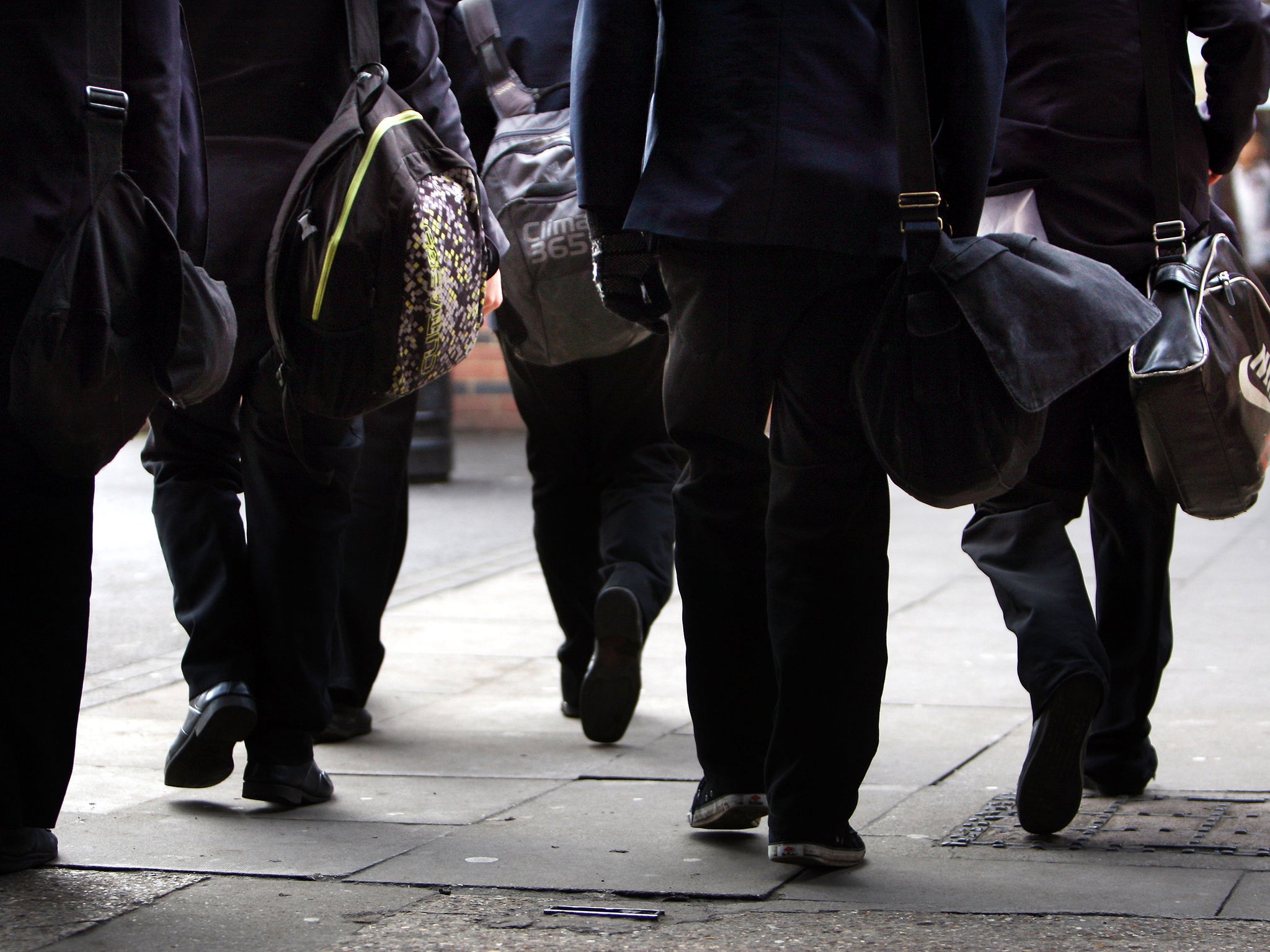National Offer Day 2018: Headteachers warn parents' anxious wait is made worse by lack of secondary school places
‘There is a desperate need for a coordinated plan on school places across an increasingly fragmented school system’

The Government is not fulfilling a basic duty of care for thousands of pupils who will lose out on their top choice of secondary schools places this year, headteachers have suggested.
Hundreds of thousands of families across England will find out today whether their child will attend their preferred secondary school from September, on what is known as National Offer Day.
But headteachers warn that the anxious wait for parents is being made worse by the Department for Education’s failure to guarantee enough school places amid a boom in pupil numbers.
Last year, around one in six pupils did not get their favoured school. And today, even more children could lose out on their top choice of secondary schools due to rising demand.
Official Government statistics show that the number of children in secondary schools is expected to grow by almost a fifth in the next eight years – which amounts to 534,000 more pupils.
The increase in numbers has been fuelled by a baby boom that began in 2002. The large numbers that have been passing through primary schools are now entering the secondary school sector.
Paul Whiteman, general secretary of school leaders’ union NAHT, said: “Until the Government sorts its act out and comes up with a national strategy to guarantee there are enough school places for every child in England, the annual anxious wait for families will always be a problem.
“For too many there will be huge disappointment. In some parts of the country, it will mean children having to travel long distances to go to secondary school or being separated from their peers.”
He warned: “It’s an issue which isn’t going away. The massive increase in pupil numbers over the next few years, particularly at secondary age, will only make it harder.”
Last year, 16.5 per cent of 11-year-olds did not get their first preference of secondary school, up from 15.9 per cent in 2016. The last time the proportion was above 16 per cent was in 2010.
Mr Whiteman said that there was a “desperate need” for a coordinated approach to school place planning across “an increasingly fragmented school system”.
Currently local authorities are responsible for ensuring sufficient school places – but they lack powers to force academies and free schools to expand to meet any need for new places are required.
The Local Government Association has warned that almost half of councils in England and Wales were at risk of being unable to meet demand for secondary school places within the next five years.
Mr Whiteman added: “Until some agency at the local or regional level has the information and the clout to prioritise school places where they are most needed, parents and children will always be unsure that the system will give them what they want.”
Malcolm Trobe, deputy general secretary of the Association of School and College Leaders (ASCL), said: “Unless there’s the provision of sufficient supply to meet the additional demand then people are going get less first choices. That’s a mathematical certainty.
“Some areas are not going to have any problems, they have enough schools and they are not full, others are seeing a huge increase [in numbers] and not enough places,” he added.
New research by Teach First, published on National Offer Day, suggests that the poorest communities in all areas of England are less likely to be served by good and outstanding schools.
The study, based on an analysis of Ofsted rating of schools in the poorest 20 per cent of areas in England, does find that the number of good or outstanding schools varies depending on region.
For example, in London a third of schools in the poorest areas are considered outstanding, compared to only 5 per cent in the North East.
Justine Roberts, chief executive of Mumsnet, said: “In areas where popular schools are over-subscribed, our users report finding the process pretty darned stressful. Stories abound of some families cheating the system, which only adds to people’s anxiety and sense of injustice.
“The consensus on Mumsnet is that more needs to be done by central and local government to address the problems now, rather than waiting for places to come online in a few years.”
Nick Gibb, the school standards minister, said: “We are raising standards across the country so that every child can go to a good school where they are taught the knowledge and skills they need for future success and we’re investing £5.8bn to create even more good school places.
“This builds on the 735,000 places we’ve created since 2010 – meaning nine out of 10 pupils get one of their top three choices of schools.”
Additional reporting from PA
Join our commenting forum
Join thought-provoking conversations, follow other Independent readers and see their replies
Comments
Bookmark popover
Removed from bookmarks